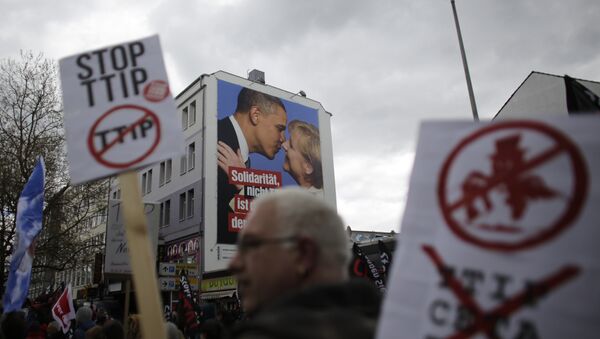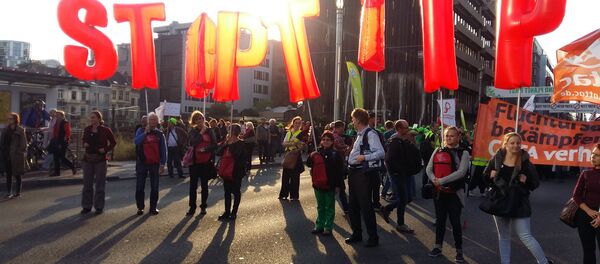Last week, German Chancellor Angela Merkel said that anti-Americanism is the true motive behind criticism of the Transatlantic Trade and Investment Partnership (TTIP) deal between Europe and the United States.
She also said that if Europe were in trade talks with Russia, there would not be even half the current criticism.
Merkel added that it is necessary to ask whether the ongoing debate is about the TTIP agreement or about something else, supposing that anti-Americanism was the true reason behind the criticism.
Folker Hellmeyer, senior analyst at Bremer Landesbank, argued that all the criticism and debates over the TTIP is not related to anti-Americanism.
Those criticizing the deal are quickly labelled as anti-American, but this is the wrong approach. In fact, the criticism is aimed to draw attention to the actual risks the agreement with Washington can bring.
"I can’t agree with Chancellor Merkel. The root of the criticism is the potential risks stemming from the deal," Hellmeyer told Sputnik German. The expert outlined those risks.
According to the expert, this creates "risks for subordination" within the projected US-EU trade alliance. In order to have equal partnership, the agreement should be reciprocal.
Second, democracy means the supremacy of law, but the TTIP deal violates this principle, he said. The deal includes a special court that would give privileges to investors.
"This is unacceptable in a state ruled by the law," Hellmeyer pointed out.
Moreover, the deal gives US companies the right to take part in government procurement programs in Europe. At the same time, European companies will not get access to public tenders in the US.
Finally, there are fears that the TTIP deal may be part of a broader geopolitical strategy.
"Let’s take a look at the Trans-Pacific Partnership deal. It excludes such major players in the region like Russia and China. The deal may result in creating new centers of the global political standoff. The same can be also said about the TTIP," Hellmeyer said.
The expert added that the United States should submit to the international jurisdiction. According to him, Washington’s global economic ambitions are outdated.
He also argued that the US government’s approach to European companies, including, for example Volkswagen and Deutsche Bank, looks more like an economic war.







